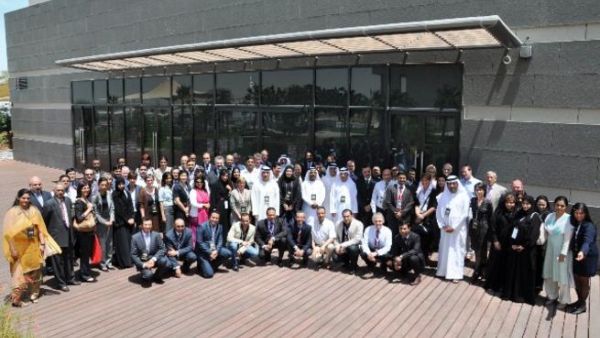Etihad holds seminar on Mental Health Amongst Aviators with Emphasis on Alcohol and Drugs

Etihad Airways, and the General Civil Aviation Authority (GCAA), organized a seminar entitled Mental Health Amongst Aviators – Emphasis on Alcohol and Drugs. The seminar took place on April 30, Yas Island, Abu Dhabi.
On the day’s agenda, studies specifically relating to the influence alcohol and drugs have on performance, especially regarding the effects they have on flying an aircraft, were discussed in depth by specialists in their respective fields.
Keynote speakers included representatives from the GCAA Dr Nabila Al Awadhi, Head of Aeromedical Section, Dr Paul Collins Howgill, Head Aviation Medicine Training, UK CAA, Dr Nadia Bastaki, Senior Aero Medical Officer, Etihad Airways, Dr Suhaila Al Awadhi consultant clinical pharmacologist, Head of Pharmacy Department at Fujairah Medical District, Ministry of Health UAE as well as doctors and specialists from King’s College London; Tawam Hospital, Al Ain; and the American Neuro Psychiatric Centre in Abu Dhabi.
There’s been an increase in alcohol-related pilot fatalities in general aviation accidents between 1987 and 1993, as reported by the Forensic Toxicology Research Section of the FAA Civil Aerospace Medical Institute. This information is based on the analysis of blood and tissue samples from pilots involved in fatal aviation accidents.
The GCAA has perceptive that the nature of aviation places a special responsibility on aviation workers, employers, regulators and governments to protect public safety and prevent harm; and any psychoactive substances has the potential for creating mental and physical problems in the user; and so any use of such psychoactive substances may negatively affect the performance of safety- related aviation duties and potential for doing harm; accordingly the GCAA has decided to recommend measures that focus on preventing the problematic use of substances by aviation workers; and preventing the adverse effects of problematic substance use from threatening the aviation workplace, Dr. Nabila Al Awadi said.
She added: “Total avoidance of alcohol and psychoactive substances should be a key element observed by every pilot in planning or accomplishing a flight. Alcohol avoidance is as critical as developing a flight plan, a good preflight inspection, obeying ATC procedures, and avoiding severe weather.”
The introduction of mandatory drug and alcohol testing program into the GCAA industry will significantly improve the overall approach to maximize pilot performance and reducing the impact of drug and alcohol use on flight safety and we will further expand the implementation of this policy to cover the entire UAE Aviation industries.
The seminar was concluded by a panel of professionals who answered questions from audience.
Background Information
General Civil Aviation Authority
The General Civil Aviation Authority was created in 1996 by Federal Cabinet Decree (Law 4) to regulate Civil Aviation and provide designated aviation services with observance to the safety and security to strengthen the aviation industry within the UAE and its upper space. Since 1996 the Authority has made considerable progress and embarked on bold new initiatives to provide a better service to its civil aviation clients and stakeholders. Since 1996 many new projects and innovations have been initiated with generally excellent result, such as modernization of the air traffic control center program, Radar equipments and establishing of new facilities to serve the growth of the civil aviation within the UAE.
Etihad Airways
As an airline, Etihad has come a long way in a short time – just like its home Abu Dhabi.
The airline was established by Royal (Emiri) Decree in July 2003 and is wholly owned by the Government of Abu Dhabi with a mandate to operate safely, commercially and profitably.






